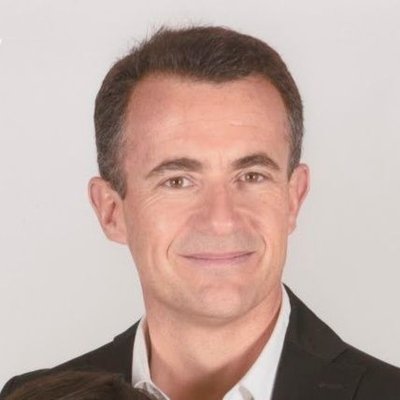What if even the most profit-hungry, capitalist companies had purpose?
People have been banding together since the days they were hunting mammoths, and this natural inclination to work collectively has never ended, says Julien Jourdan, Associate Professor of Management & Human Resources at HEC Paris. It's an indication, he feels, that there's more to every business than profit.

Purpose, CSR, ethics – they're right at the top of the company check-list these days. All but the most blinkered businesses have come to understand that their employees and their customers have at least half an eye on what they do, and that they will be called out if their behavior veers towards the unacceptable.
But what if it turned out that the businesses and organizations we work for and from which we buy our goods and services had a natural inclination to 'serve' in a significant way? What if all businesses had an inbuilt sense of purpose – even the seemingly most capitalist, profit-hungry ones?
This idea of a proverbial North Star quietly guiding every business is a controversial one, but it's one in which Julien Jourdan, whose research focuses on legitimacy and other social evaluations of organizations, wholeheartedly believes.
Firms are not for profit - individuals are
"It's quite provocative when I say that there is no such thing as a 'for-profit' organization," he says. "People are for profit – you work for a paycheck; shareholders invest because they want a return on their money; clients expect value from what they pay for a product or service – but if you think about organizations and firms in particular, why would a firm seek to accrue a profit?"
A firm doesn't actually keep a profit, he points out: the profit is shared out among shareholders. "And if you know anything about accounting," he adds, "then you'll know that each time you have profit you have liability – you owe that money to somebody else. So, firms are not for profit. Individuals are."
It's a bit of a bombshell.
Having an inbuilt purpose can be a game-changer
Julien Jourdan is at the cutting-edge of thinking when it comes to purpose. While many firms are scrambling around to latch onto something noble so that they can shout about it, the idea that they already have something built in is a game-changer.
"What is the real purpose of an organization if it is not to make profits?" he states. "I think it is very simply to provide solutions; to invent and deliver solutions for real-world problems. That's why we create organizations in the first place."
For Julien Jourdan, Tesla – one of the top 10 largest companies in the world by market capitalization – is as a shining example of a company with a built-in purpose. There's actually a pretty strong clue on the firm's LinkedIn page, where the company sells itself in a single line: "Tesla's mission is to accelerate the world's transition to sustainable energy."
It's the kind of mission statement you can get behind, and a lot more inspiring than "we want to sell lots of cars and make lots of money."
"There is no doubt that investors want a return on investment, employees want a paycheck at the end of the month, clients want a good car that is efficient and so on," he affirms, "but Tesla as an organization addresses a major challenge, which is that our transportation system is creating all sorts of negative externalities. Tesla is offering a set of solutions to address that. It's not only the electric car but it's also the batteries and all the systems and software that goes around it. Tesla has a purpose."

Working for the greater cause
One of Jourdan's aims is to help people and organizations to discover – or, perhaps more accurately, rediscover – theirs. Working with fellow HEC Paris Professor Laurence Lehmann-Ortega, he is currently involved in a project with a major Japanese company, whose executives are being asked to contemplate the purpose of not just their work but their own lives.
"I'm in charge of the leadership part of the program," says Jourdan, "and the company asked us to think about something called 'kokorozashi', which they translated as 'greater cause'."
It is, in essence, a quest to discover what 'drives' you, he explains. "It helps us to then see a link between individual purpose and a corporate purpose," he adds. "What is the meaning of work? Why do we work so hard every day? There is more to work than a paycheck – but what can that be? It's my view that when there is an overlap between your own purpose and the purpose of the business, that creates all sorts of mutual benefits. Because then you feel that you derive meaning from what you do at work."
In this program, Julien Jourdan is helping leaders to think about what makes them feel alive, what makes them excited. "Also, what are they good at and what do they contribute to society," he adds. "This is where individual purpose lies, and at the end of the program the employees will be presenting their own 'greater cause' to the management of the company. I think that's quite extraordinary."
The goal is to help these people become better leaders. "But I think there's another side," he says. "If you discover in the process that your purpose is not aligned with the purpose of the corporation, then it may imply that you need to rethink your career choices."
We're still only scratching the surface
It's a fascinating subject. And in many ways, we're still only scratching the surface. "Even terrorist organizations have purpose, so it's definitely not the same as CSR," he states. "It's kind of a new way of thinking about business, and we don't have all the answers yet."
For now, though, it perhaps all boils down to this: "If you only have a poster on the wall stating, 'this is what our business stands for’, it’s not going to work," he affirms. "You need to involve all the people in the organization in thinking about why you do things, why you operate, why people go to work every day. And often this takes people right back to the start of the organization and, hopefully, you find out that the founders had a sense of purpose because they wanted to address a problem."
In all likelihood, then, the original sense of purpose behind a business can be rediscovered. It does not mean that purpose is set in stone. Organizations grow and change. “Your purpose may evolve. All you really need to do now is understand it” he concludes.